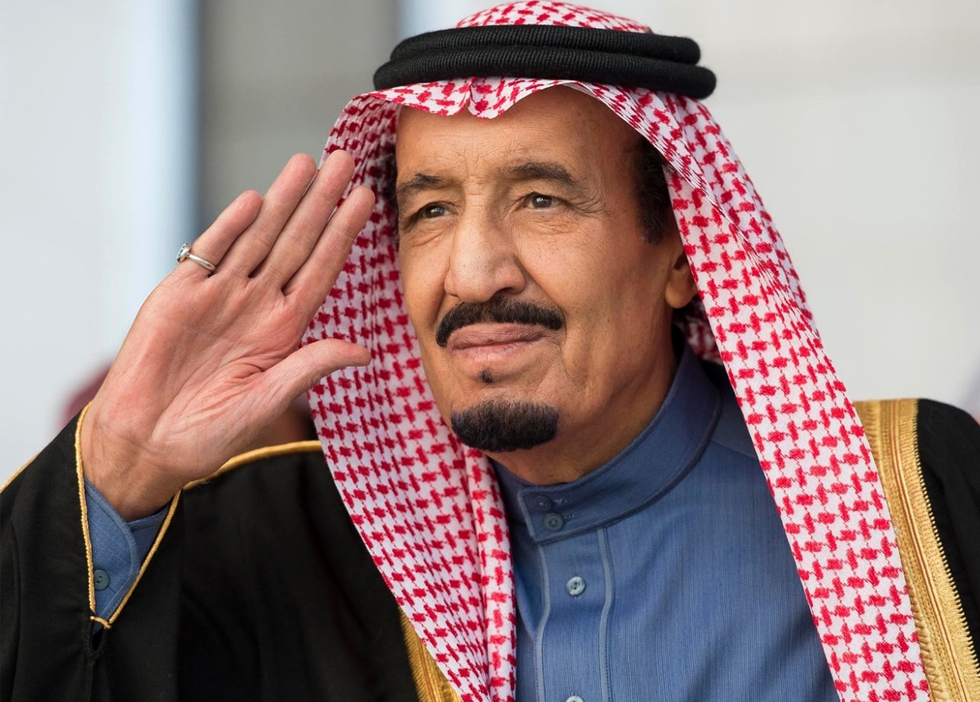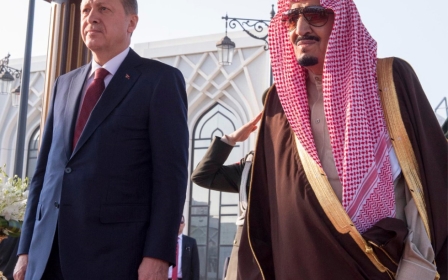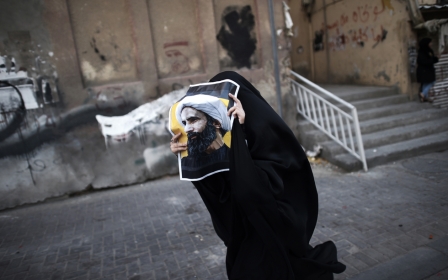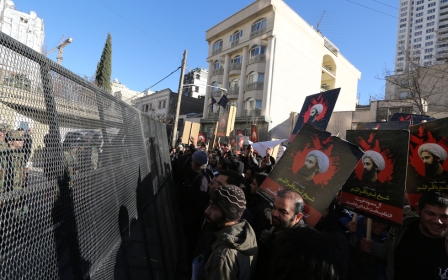Saudi-Iran crisis escalates as Kuwait recalls ambassador

The diplomatic crisis between regional rivals Saudi Arabia and Iran escalated further on Tuesday as Arab states continue to impose a string of sanctions on Tehran.
Kuwait recalled its ambassador to Tehran and Bahrain severed ties in the face of growing international concern. The UAE has also downgraded the level of its diplomatic representation and ordered some of its diplomats to return home.
“This exceptional step has been taken in the light of Iran’s continuous interference in the internal affairs of Gulf and Arab states, which has reached unprecedented levels,” the UAE said in a statement issued on Tuesday.
Kuwait meanwhile stressed that attacks on the Saudi Arabian embassy in Tehran over the weekend "represent a flagrant breach of international agreements and norms and a grave violation of Iran's international commitments".
Sudan has already followed Riyadh’s example by pulling its envoy and severing ties.
Iranian President Hassan Rouhani on Tuesday lashed out at Riyadh saying it had cut ties in order to "cover its crime".
"One does not respond to criticism by cutting off heads," Rouhani said, referring to the usual Saudi practice of carrying out executions with beheading by the sword.
The escalation in Arab capitals comes despite Rouhani’s earlier condemnation of the attacks and Tehran’s pledge to "take necessary measures to prevent the occurrence of similar incidents in the future".
The protests outside the embassy broke out after Riyadh executed Sheikh Nimr al-Nimr and 46 others on Saturday for alleged terrorism-related offences.
Nimr was a prominent Shia cleric who played a key part in organising protests in Saudi’s Shia-majority Eastern province in the wake of the Arab Spring before his arrest in 2012. Demonstrations in the restive region have broken out since Nimr's death with fresh incidents happening on Tuesday after Saudi police said armed "troublemakers" torched a bus in protest. Social media sites said the bus belonged to the Saudi oil firm Aramco.
Mediation attempts
According to reports in Sputnik, foreign ministers from Iraq and Oman are due to travel to Tehran on Wednesday to try and calm tensions, the Iranian Foreign Ministry’s information department told the news website.
“Tomorrow the heads of the foreign ministries of Iraq and Oman, Ibrahim Jaafari and Yusuf bin Alawi, will arrive in Tehran to discuss the latest events and relations with Iran,” a source in the department said.
“During the meetings, the relations between the countries and the latest events in the region will be discussed, in particular in regard to Iran’s relations with Saudi Arabia,” the source added.
Syria talks in peril?
Washington and other Western powers have repeatedly urged for calm amid fears the dispute could raise sectarian tensions across the Middle East and derail efforts to resolve conflicts from Syria to Yemen.
The UN envoy for Syria, Staffan de Mistura, rushed to Riyadh on Tuesday where he met with Saudi Foreign Minister Adel bin Ahmed Al-Jubeir in hopes of securing Saudi support for UN-backed peace talks on Syria, expected to take place later this month.
"There is a clear determination on the Saudi side that the current regional tensions will not have any negative impact on the Vienna momentum and on the continuation of the political process that the UN, together with the International Syria Support Group, intend to start in Geneva soon,” De Mistura said.
"We cannot afford to lose this momentum despite what is going on in the region."
However, US officials on Tuesday acknowledged the diplomatic rift would hamper of a deal with an unnamed official telling Reuters that things would now be a “lot harder”.
A second senior US official also said the situation was “obviously very fragile”.
New MEE newsletter: Jerusalem Dispatch
Sign up to get the latest insights and analysis on Israel-Palestine, alongside Turkey Unpacked and other MEE newsletters
Middle East Eye delivers independent and unrivalled coverage and analysis of the Middle East, North Africa and beyond. To learn more about republishing this content and the associated fees, please fill out this form. More about MEE can be found here.




